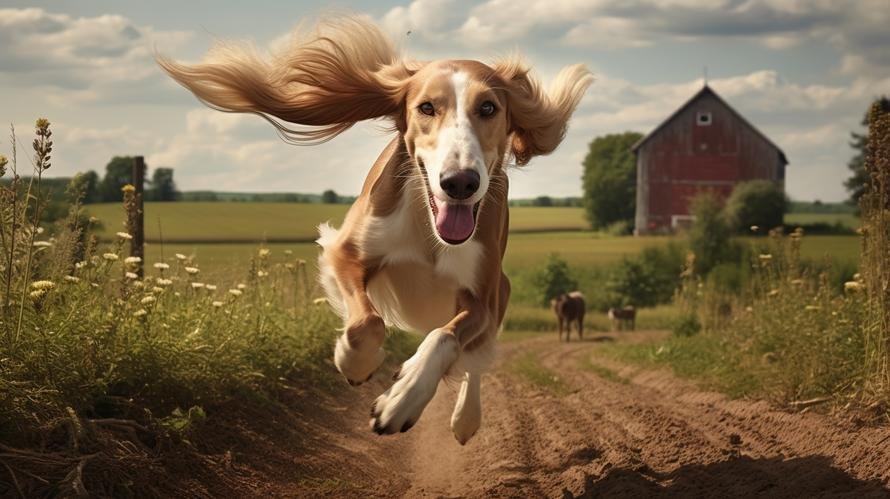How about we stroll off the beaten track of conventional dog breeds and dive into the realm of one of the world’s most ancient breeds, the stunning Saluki? Long-legged, slender, and grace encapsulated in the form of a hound, the Saluki showcases an intriguing fusion of elegance and speed.
Let’s shift gears from the surface aesthetics and jump into the central topic at hand. Is the Saluki a hostile breed? Hint: it’s not what you might be guessing!
Peak beneath the Saluki’s exquisitely sleek exterior and you will discover a temperament that is just as distinct and unique. Generally speaking, Salukis are known to be incredibly gentle, friendly and affable creatures, often demonstrating a level of docility and calmness which may catch many people by surprise, especially given their hunting dog lineage.
Shockingly, their first impressions do not match the aggressive stereotype that some dog breeds regrettably hold. If you’ve ever thought that speed and intensity equate to aggression in the world of dogs, think again. Salukis are undoubtedly here to challenge that stereotype.
So, are Salukis just harmless, fast, and friendly dogs who happen to look like they could run in a greyhound race? The answer, dear reader, is not that simple. It is essential to remember that Salukis are, at their core, hunting hounds, and were bred originally for this specific purpose. This inherent instinct can sometimes be mistaken for aggression.
Remember how your pet cat brings you the occasional ‘gift’ of a poor mouse or bird, even though it’s perfectly well fed? Well, just like the cat’s hunting instinct, Salukis also possess an innate drive. It’s practically etched into the DNA of the breed. However, confusing this instinct for aggression would be somewhat like accusing a shark of aggression for doing what Mother Nature designed it to do.
No, that’s not to say that your Saluki will come bringing ‘presents’ at your door, but it’s crucial to understand this pre-disposition. Although these beautiful dogs will adapt seamlessly into your homes as gentle pets, the sight of a suspect squirrel or rabbit (even in a well-fenced garden) could trigger that ancient hunting instinct.
This characteristic doesn’t mean that Salukis are aggressive. They are simply manifesting a behavior that is hardwired into their genetic makeup. This inherent trait is a reason they are an experienced dog owner’s breed, requiring awareness about their needs and a strong understanding of dog behavior.
To raise a well-behaved Saluki, you need to fortify the bond through trust, patience, and mutual respect, as opposed to methods involving aggression or dominance. They are sensitive dogs, and getting impatient or trying to inflict dominance will intimidate them, leading to further behavioral issues.
Socialization is paramount for the Saluki. Introduce them to various environments, people, and other animals from a young age. Continued exposure to new faces and parts of the neighborhood will help the Saluki pup grow into a well-rounded adult dog. Positive reinforcement is the key here, along with patience and persistence.
Like any other breed, the Saluki needs a balanced mix of physical activity and mental stimulation. While they may not be an ‘eager-to-please’ breed, they are incredibly intelligent. Include activities in their routine to challenge that bright mind of theirs, and you’re bound to have a healthy, happy Saluki as a companion.
In conclusion, perhaps it’s time to disperse the ominous cloud surrounding the question: “Is Saluki aggressive?” The answer is, they’re not inherently aggressive, but like any breed, they have their unique behavioral traits.
A Saluki looks at the world with a somewhat distinct lens, with curiosity, agility, and an innate hunting drive. But, with consistent guidance, they can adapt, thrive even, in a home environment, forming deep bonds with their human companions. If you find these qualities appealing and are equipped with patience and understanding, then a Saluki might just be the best four-legged companion for you.
After all, it’s about understanding, respecting, and catering to their needs. And isn’t that what being a responsible pet parent is all about?



